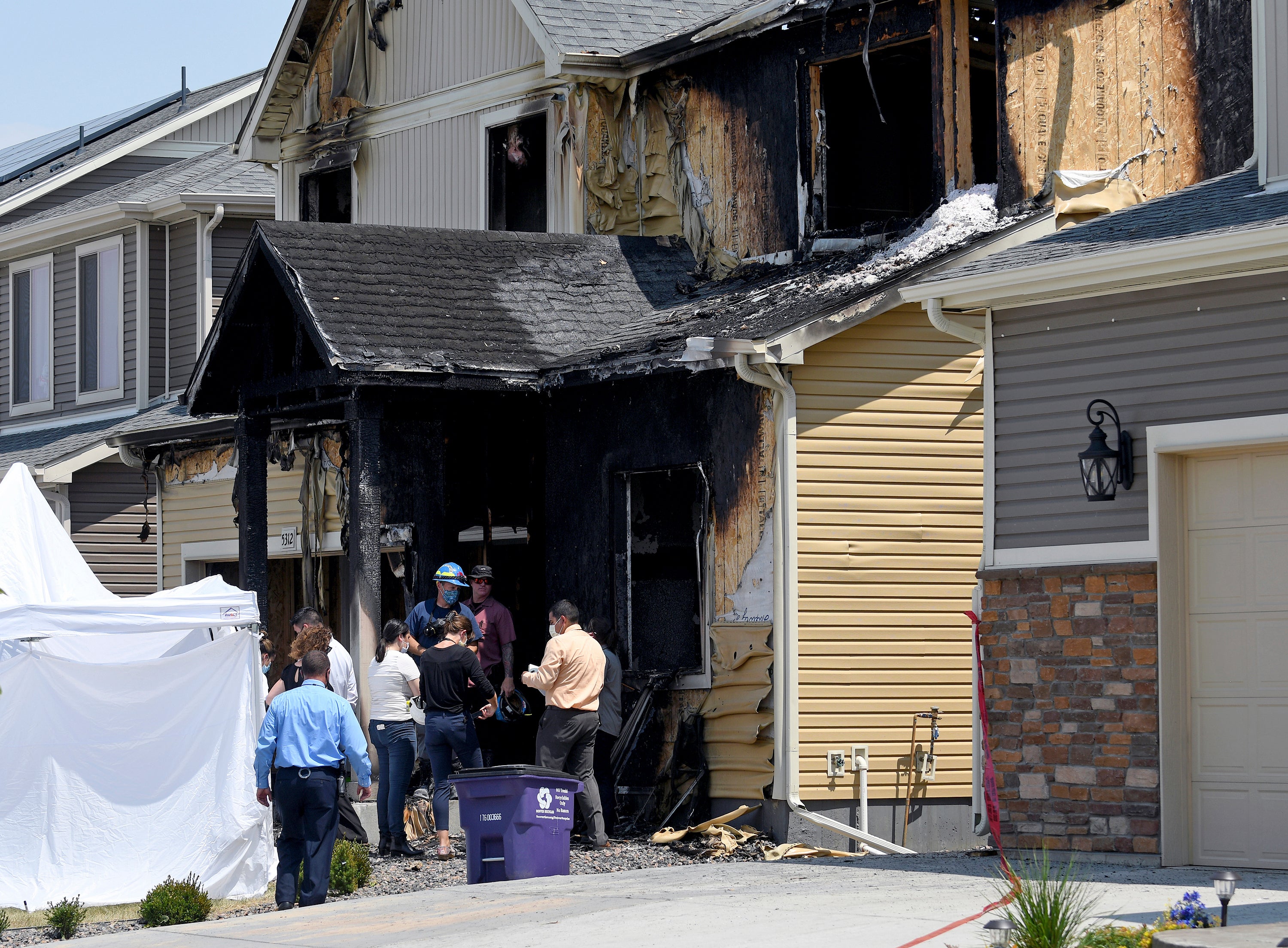Colorado court upholds Google keyword search warrant which led to arrests in fatal arson
Colorado’s highest court has upheld the search of Google users’ keyword history to identify suspects in a fatal arson fire

Your support helps us to tell the story
From reproductive rights to climate change to Big Tech, The Independent is on the ground when the story is developing. Whether it's investigating the financials of Elon Musk's pro-Trump PAC or producing our latest documentary, 'The A Word', which shines a light on the American women fighting for reproductive rights, we know how important it is to parse out the facts from the messaging.
At such a critical moment in US history, we need reporters on the ground. Your donation allows us to keep sending journalists to speak to both sides of the story.
The Independent is trusted by Americans across the entire political spectrum. And unlike many other quality news outlets, we choose not to lock Americans out of our reporting and analysis with paywalls. We believe quality journalism should be available to everyone, paid for by those who can afford it.
Your support makes all the difference.Colorado’s highest court on Monday upheld the search of Google users' keyword history to identify suspects in a 2020 fatal arson fire, an approach that critics have called a digital dragnet that threatens to undermine people's privacy and their constitutional protections against unreasonable searches and seizures.
However the Colorado Supreme Court cautioned it was not making a “broad proclamation” on the constitutionality of such warrants and emphasized it was ruling on the facts of just this one case.
At issue before the court was a search warrant from Denver police requiring Google to provide the IP addresses of anyone who had searched over 15 days for the address of the home that was set on fire, killing five immigrants from the West African nation of Senegal.
After some back and forth over how Google would be able to provide information without violating its privacy policy, Google produced a spreadsheet of sixty-one searches made by eight accounts. Google provided the IP addresses for those accounts, but no names. Five of the IP addresses were based in Colorado and police obtained the names of those people through another search warrant. After investigating those people, police eventually identified three teens as suspects.
One of them, Gavin Seymour, asked the court to throw the evidence out because it violated the Fourth Amendment's ban on unreasonable searches and seizures by being overbroad and not being targeted against a specific person suspected of a crime.
Search warrants to gather evidence are typically sought once police have identified a suspect and gathered some probable cause to believe they committed a crime. But in this case, the trail had run cold and police were seeking a “reverse keyword” warrant for the Google search history in a quest to identify possible suspects. Since the attack seemed targeted, investigators believed whoever set fire to the house would have searched for directions to it.
The state Supreme Court ruled that Seymour had a constitutionally protected privacy interest in his Google search history even though it was just connected with an IP address and not his name. While it also said it assumes that the warrant was “constitutionally defective” for not specifying an “individualized probable cause”, the court said it would not throw out the evidence because police were acting in good faith under what was known about the law at the time.
The court said it was not aware of any other state supreme court or federal appellate court that has dealt with this type of warrant before.
“Our finding of good faith today neither condones nor condemns all such warrants in the future. If dystopian problems emerge, as some fear, the courts stand ready to hear argument regarding how we should rein in law enforcement’s use of rapidly advancing technology. Today, we proceed incrementally based on the facts before us," it said.
In a dissent, Justice Monica Marquez said such a wide-ranging search of a billion Google users' search history without a particular target is exactly the kind the Fourth Amendment was designed to stop.
“At the risk of sounding alarmist, I fear that by upholding this practice, the majority’s ruling today gives constitutional cover to law enforcement seeking unprecedented access to the private lives of individuals not just in Colorado, but across the globe. And I fear that today’s decision invites courts nationwide to do the same,” she said in the dissent, which Justice Carlos Samour joined in.
In a statement, Google said it was important that the court's ruling recognized the privacy and First Amendment interests involved in keyword searches.
“With all law enforcement demands, including reverse warrants, we have a rigorous process designed to protect the privacy of our users while supporting the important work of law enforcement,” it said.
The ruling allows the prosecution of Seymour and Kevin Bui, who were 16 at the time of the Aug. 5, 2020, fire, to move ahead in adult court on charges of first-degree murder, attempted murder, arson and burglary. Investigators allege Bui organized the attack on the home because he mistakenly believed people who had stolen his iPhone during a robbery lived there.
Telephone messages and an email sent to Seymour's lawyers, Jenifer Stinson and Michael Juba, were not immediately returned. A lawyer for Bui, Christian Earle, could not be reached for comment.
A third teen, Dillon Siebert, who was 14 at the time and originally charged as a juvenile, pleaded guilty earlier this year to second-degree murder in adult court under a deal that prosecutors and the defense said balanced his lesser role in planning the fire, his remorse and interest in rehabilitation with the horror of the crime. He was sentenced to 10 years behind bars.